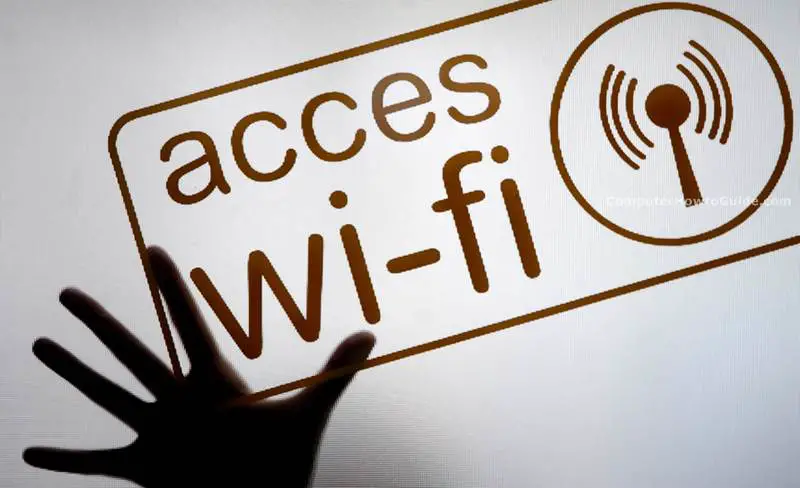Are you on a public network? If yes, you need to change the way you use the internet and the WiFi completely. When you are at home, you might share a number of things, such as folders, printers and so on. Moreover, you can also allow remote login from different computers, which are registered on your network. However, this needs to be avoided when you are on public network. When you are on public WiFi and putting your computer’s sharing on, the components of your PC can be accessed by almost anyone. And for it, the one who accesses your computer do not even need to be a hacker.

Safer to Use HTTPS instead of HTTP
If you are using the regular internet connection and websites with Hypertext Transfer Protocol (HTTP), you will remain in the threat zone. The websites over HTTP usually transfer the concerned data in plain text. Hence, it can be accessed without any hassle by anyone who has some basic knowledge about the networks. Using HTTP Secure (HTTPS) or Secure Sockets Layer (SSL) can be a great way to ensure that the data you are transferring is completely protected. These programs transfer data in encrypted forms and hence, they are among the safest modes of using WiFi.
Ensure that You Don’t Get Automatically Connected
A number of times you might not even know when your computer is getting connected directly to a WiFi network. This happens if the settings in your computer allow the device to connect automatically to the connections available. As a result, you may not even know when your computer is connected to a malicious network and is being hacked. Hence, you should always disable the auto-connect option in your device, which helps it connect automatically to the networks available. However, in many cases, these networks can harm your computer or result in data theft from your device.
Connect to the Right Network
When you are planning to connect to a WiFi network, you need to know the name of your desired WiFi service provider as well. In most of the cases, the malicious networks have names, which can fool unassuming WiFi users. Hence, they connect to the network, without knowing that they are moving a step forward towards suffering data theft.
[Read also: Protect Your Data from Snooping When You Are in a Free WiFi Zone]
Create Unique Passwords for Your Network and Devices
Using unique password for your network is a must. You also need to protect your device with a well planned password. It is important to ensure that the password that you are using cannot be easily deciphered. Otherwise, even your password protected device is going to be at the risk of being hacked at any moment.
Set a MAC Filter to Remain in the Safe Zone
Along with several other components and factors, the physical address or MAC address of a device plays a major role in ensuring that the device that you are using is properly connected to the internet through WiFi. It is the unique identifier, which your device has. There are different devices, which allow to key in specific MAC address. Thus, those devices are going to connect through the WiFi to only those MAC address. It is important for you to set a MAC filter, as it will ensure that your device is not easily connected and manipulated by other networks.
Assigning a Static IP Address is a Must
It is easy to obtain valid IP addresses, especially when a network is working on dynamic IP address. Most of the users in recent times have the tendency of using dynamic IP address. Although this is not difficult to set up, this form of system is vulnerable to hacking and data theft. Hence, it is not advisable to go for a dynamic IP address for your computer. You should assign a static IP address to ensure that you do not face the problem of hacking.
In the recent world, the concept of hacking and data theft has increased significantly. Hence, with it the necessity of increasing the security is also on the rise. You always need to take every step in a well calculated manner. It is important to take the necessary steps while using a WiFi network. It will help to ensure that no security is breached, which can result in data theft.

Absolutely. I agree that it is essential to have a unique password for your network. I also like your tip about using a static IP address. Very helpful. Thank you!
Annie, unique password is an absolute necessity these days, so is a static IP. Without these you just can’t expect to have a secure connection.
Some veteran hackers even set their fake networks to have the same name as the actual provider, making it virtually impossible to distinguish for the layman. I informed the provider, so they set a password which you have to ask them to obtain it, which I guess helps to reduce the victims significantly.
Yes Katy! Connections can still be hacked. So,it is always a good idea to get in touch with the service providers if you have any doubt or suspicion.
I am completely paranoid about shared WiFi for these very reasons. I have my WiFi set up at home to a high standard and refuse to use WiFi hotspots like cafes and similar places.
After watching a hacking documentary and watching how a hacker sat at another table and hacked the guy next to him and brought all his emails up, I am very wary.
If I ever found myself in need of it though, these tips are extremely helpful, thank you.
Yes, absolutely. In fact, most of the people these days are wary of wifi for these very reasons. But for that you just can’t keep an advancement of technology away. You have to use wifi. And that is when following these processes will help you remain safe even when using wifi.